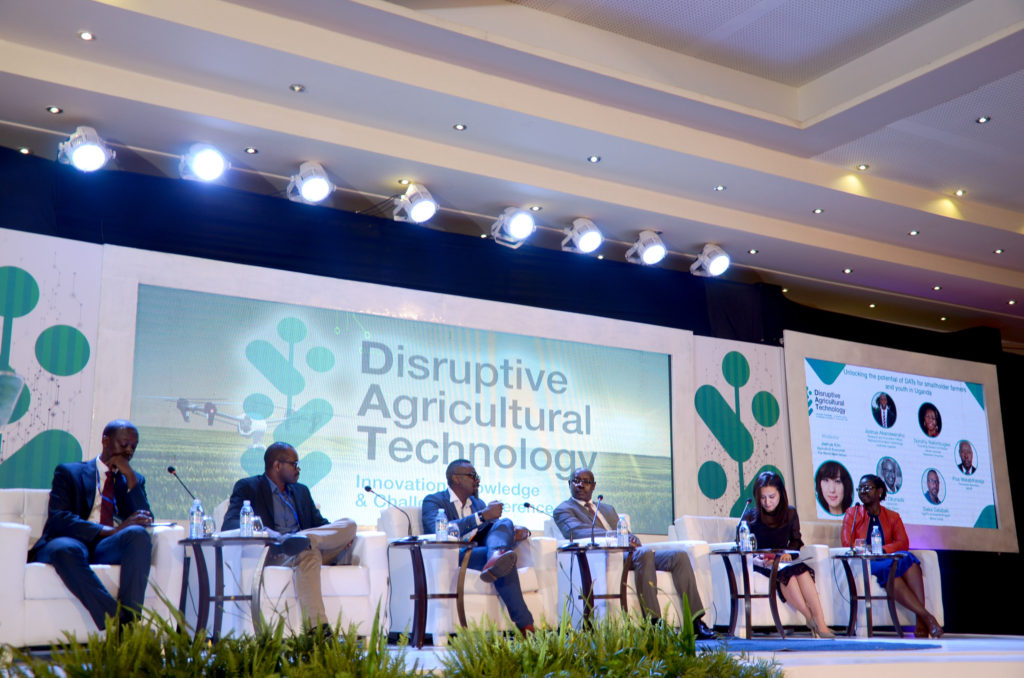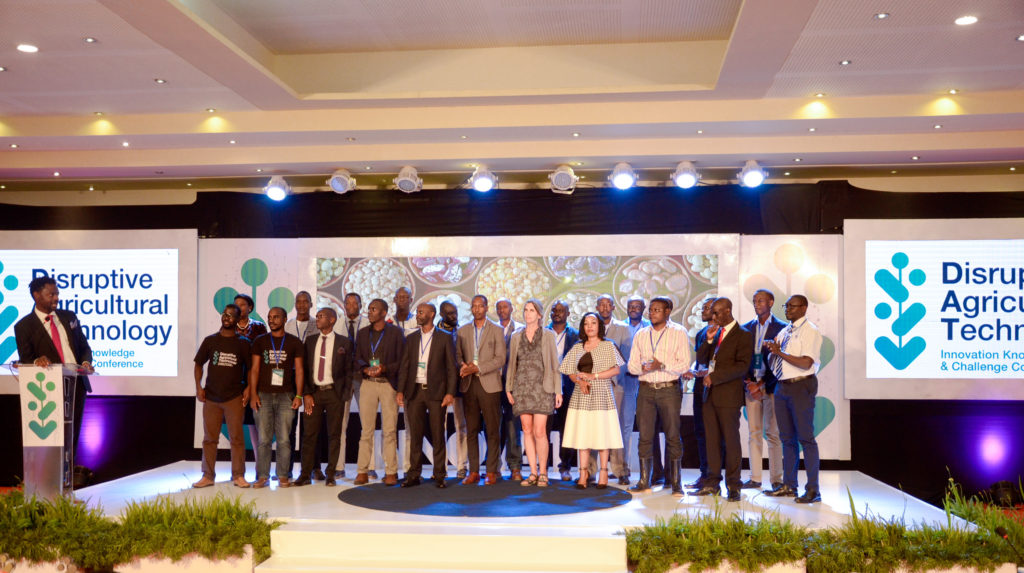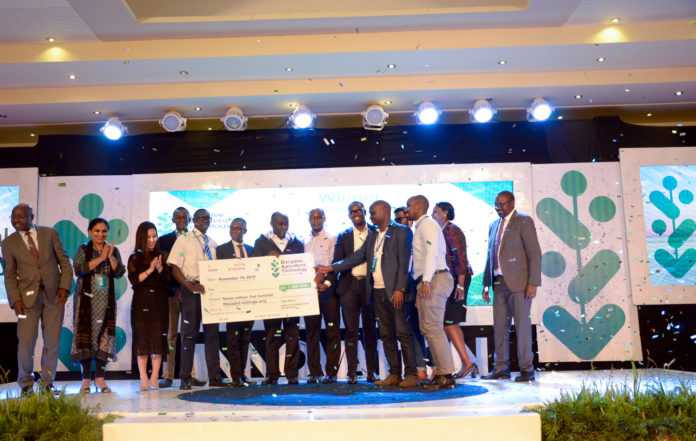By Winnie Kamau
A new generation of Ugandan Tech entrepreneurs won business opportunities with a flagship government project to help drive forward the digital revolution in agriculture.
At an event held in Kampala, Uganda’s Ministry of Agriculture, Animal Industry, Fisheries (MAAIF), in partnership with the World Bank Group, announced the first cohort of promising Ugandan agricultural technology entrepreneurs to win support to scale up their businesses.
The winning innovators won “preferred vendor status” for Agriculture Cluster Development Project (ACDP), Uganda’s agricultural development project financed by the World Bank.
According to FAO, Uganda’s fertile agricultural land has the potential to feed 200 million people. 80% of Uganda’s land is arable but only 35% is being cultivated.

According to Export Gov shows Agriculture in Uganda accounted for about 20% of GDP in fiscal year 2017/2018, and 43% of export earnings with Uganda Bureau of Statistics (UBOS) estimating about 70% of Uganda’s working population is employed in agriculture. Yet the sector has so far failed to benefit from digital technologies that can boost productivity and improve farmer livelihoods.
“Uganda already has a small but thriving start-up scene,” said Shobha Shetty, Practice Manager, Agriculture, of the Africa Region at the World Bank.
“We are working to channel that innovation toward agricultural solutions with the potential to positively disrupt how farming happens here for better livelihoods and prospects for all Ugandans,” said Shetty.
The start-up sector in Uganda is rapidly growing, raising more than US$16 million in 2017, which represented a 53% growth year on year. However, there are likely to be enormous untapped potential given start-ups in Uganda’s neighbor Kenya raised close to US$147 million in the same period.
“Digital technologies promise to transform agriculture in Uganda to achieve our current goals while preparing us to face the challenges of the coming decades,” said Hon. Vincent Ssempija, Minister of Agriculture, Animal Industry and Fisheries.
“But they need committed and directed investment. We are thrilled to be working with the World Bank to help unlock the enormous potential of Uganda’s agriculture sector.”
Start-ups and innovators pitched for funding, business and support in front of a jury of experts at the Disruptive Agricultural Technology (DAT) Challenge and Conference.

Disruptive technology can impact and advance every stage of the agricultural value chain. Mobile phone applications, artificial intelligence, and automation are already driving change across the entire sector and can be harnessed to improve the yields and incomes of Uganda’s smallholder farmers and others along the value chain.
These new innovations can also overcome previous barriers to access for inputs like improved seeds or fertilizer, or services that help farmers get their produce to market.
Such advancements sit alongside developments in financial and advisory services as well as data analytics, all promising to improve the productivity of today’s farm.
“With youth unemployment in Uganda as high as 13%, disruptive technology has the potential to offer young people a greater variety of accessible, exciting and entrepreneurial employment options away from the manual labor of farming,” said Tony Thompson, Country Manager at the World Bank.
“From software design to value chain development, disruptive technologies both appeal to a generation of tech-savvy young people and make the best use of their skills.”
Participants were chosen based on a set of selection criteria, including having tried and tested their technology on farmers; developed a proof of concept with a feasible business model covering at least two years; provided evidence of impact on productivity; showcased interaction with other ecosystem players; focused on smallholder and women farmers.
The winners, who will receive a cash prize, will be invited to pilot and scale up their innovations within the ACDP, a US$150 million agricultural project to improve agricultural productivity and production to meet both unmet domestic demand and to expand exports.
Here is the list of the winners of Techpreneuer
Category 1: Productivity
· WINNER: M-Omulimisa
Category 2: Market linkages
· WINNER: Akello Banker
Category 3: Financial inclusion
· WINNER: M-Cash Uganda
Category 4: Data analytics
· WINNER: Data Care
Runners up:
· Jabba Engineering
· Cabral
· Paat Soil Capital
· Farm Radio International
· Oriems Cloud
· Farmunera
· TruTrade
· Hamwe East Africa














